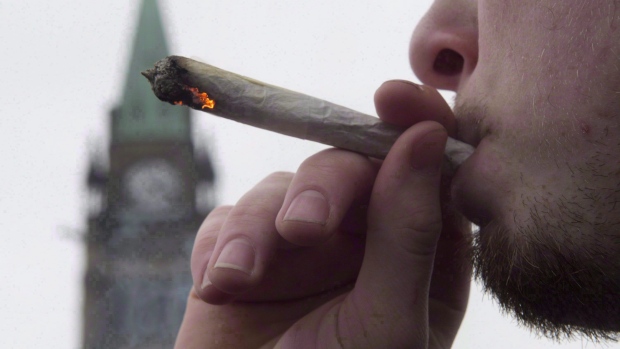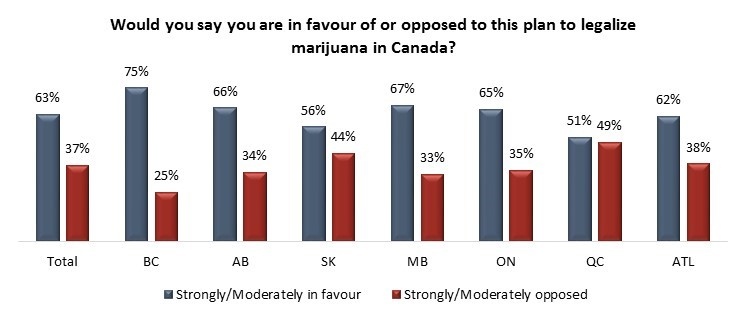Apr 20, 2017
Canadians support pot legislation, skeptical of effectiveness: Poll
, BNN Bloomberg

Most Canadians support the federal government marijuana legalization plan but are skeptical about its effectiveness, according to an Angus Reid Institute poll released Thursday.
More than 60 per cent of respondents said they were in favour of the government’s Cannabis Act proposed on Apr. 13, but two-thirds believed a successfully enacted legislation would not deter young people from increasing their marijuana consumption.
Angus Reid executive director Shachi Kurl says the divide between support for the bill and faith in its ability to achieve its goals points to a population waiting to see how the feds’ pot plan is executed.
“It tells me that the devil really is in the details, both in terms of the draft legislation and the detailed regulations that have yet to be filled in,” she told BNN.
“Overall, Canadians continue to support legalization, but the jury's still out regarding what that looks like in practice, and long term impact.”
The feds set an implementation date of no later than July, 2018.
Support for marijuana legalization was close to two-thirds of respondents in Alberta, Manitoba, Ontario and Atlantic Canada. Quebec, however, saw only 51 per cent support. Conversely British Columbians polled were 75 per cent in favour of legalization.

The government’s legislation proposed a minimum age of 18 for marijuana use but left the door open for provinces to raise it.
This proved another divisive issue among Angus Reid’s respondents, with 58 per cent stating that 18-years-old was not a low enough minimum. Much of that number came from those who oppose the legislation: While 58 per cent of supporters believed 18 was ‘about right’, 86 per cent of the opposition sought a higher legal age.
Results were mixed for the ‘zero-tolerance’ approach to drug- impaired driving promised in the legislation.
There was a nearly even split on whether the proposed new rules would be effective. However, within the 51-49 split were 53 per cent of 18-34-year-olds believing the measure would succeed and 58 per cent of those 55 and over believing it would not.




